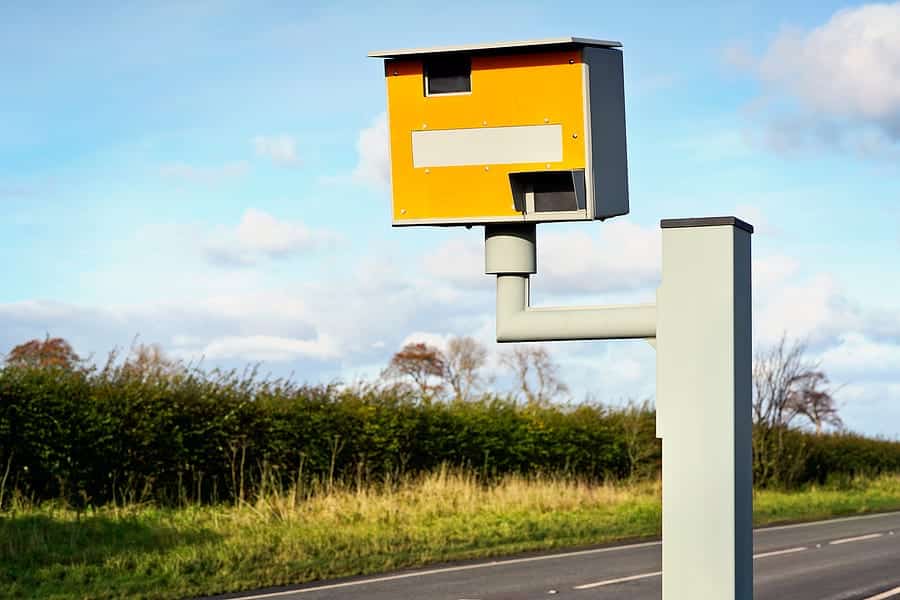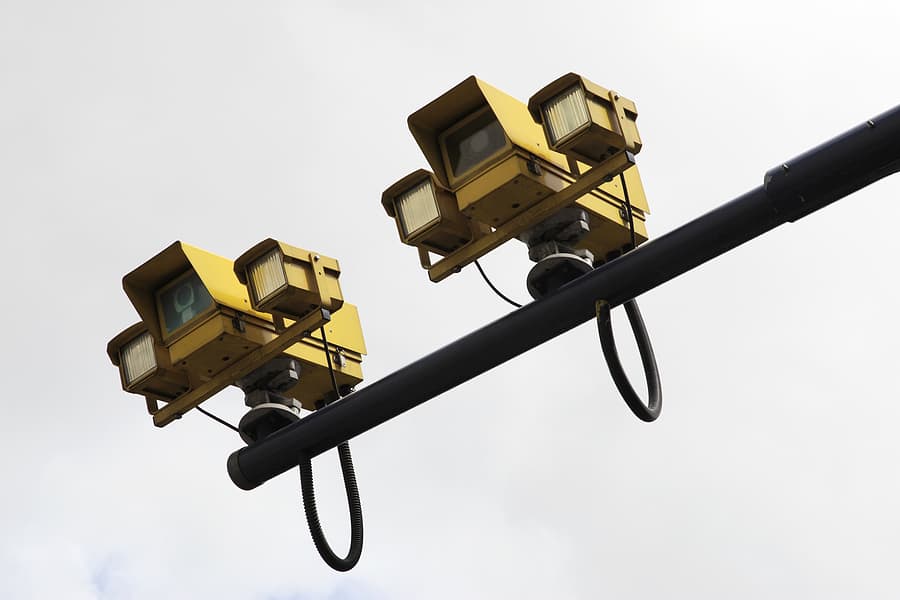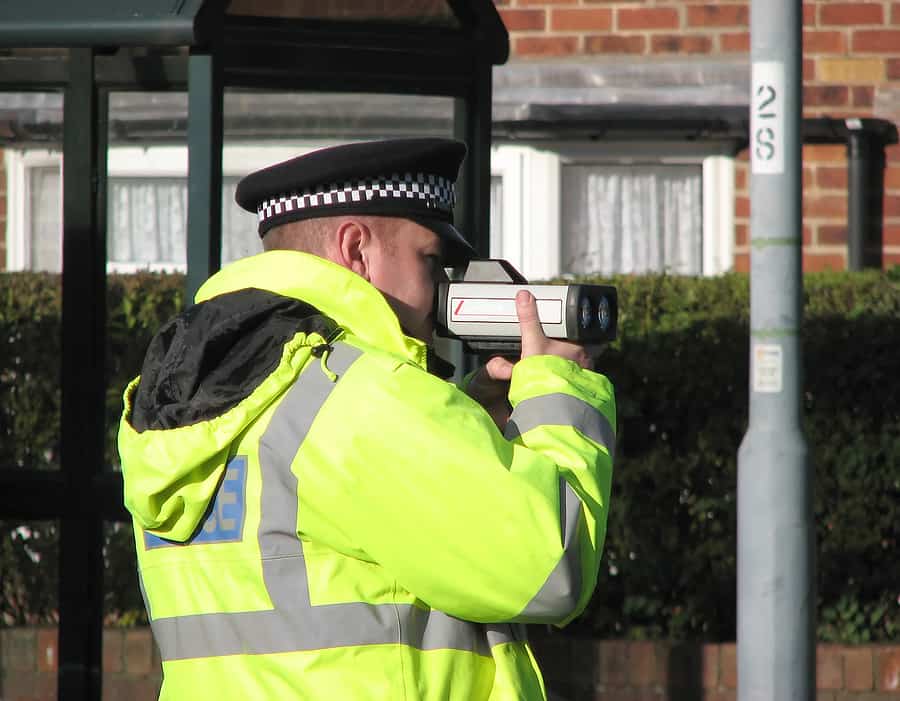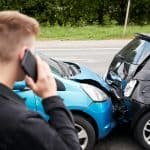
You’re sitting in your car, driving along. A flash goes off. You instantly know what it means as you quickly glance down to the speedometer. You know an automatic letter is winging its way out to you in the post. Could be a fine, points on your license. Or worse a court date.
Speed cameras are put in place to ensure drivers stick to the required speed limit. Drivers that go too fast are dangerous, as reaction times are reduced. However, there are many misconceptions about how these cameras work. So what is fact and what is firmly fantasy?
The Myths
These are some of the common stories you may have heard, concerning the behaviour of speed cameras, and in some instances, how they react to your driving. Are they mechanism of the camera, or simply urban myths?
A speed camera is always on…
According to freedom of information disclosures in the UK, there is a fair proportion of speed cameras that are actually turned off at any time. However, this doesn’t mean that there’s any way you can tell which ones are active – meaning that even a powerless speed camera should act as a deterrent.
Only yellow speed cameras are legal
Unfortunately this one is false. Grey cameras are equally entitled to snap you and send out a fine as a yellow camera. Even though the government has made noises about painting all the cameras yellow.

Average speed cameras don’t actually work
In fact quite the opposite. Average speed cameras have proven to be more effective than standard speed cameras, as they track and monitor individual vehicles. Drivers are prevented from slowing down simply for the camera and speeding back up again immediately afterward.
There must be a flash…
Yes, the most common speed camera (often called the Gatso from Gatsometer BV camera) does like to flash when you’ve been caught speeding. This is not true of all cameras. But if you have been flashed, you are probably dealing with a Gatso, and there’s a good chance a letter is on it’s way to your registered
Speed cameras are a ‘nice little earner’
Some motorists claim that speed cameras are part of some kind of administrative war on drivers. There are even claims that local councils use cameras as a cash generator. However, the facts speaks for themselves. Speed is a contributing factor in over 25% of crashes. Travel faster and you’re not only more likely to crash, but your impact is more likely to prove fatal to your or other drivers.
Only from one side of the road
OK this one is a little bit trickier. Fixed speed cameras may only be pointed at one side of the road. This is not guaranteed however and should not be taken for granted. Mobile speed testing units are another matter entirely and radar guns are going to get you – no matter which direction you’re travelling in.

Only speed… Not smartphones
It used to be true that speed cameras were only focused on your speed. Older versions could not tell if you were misbehaving behind the wheel. 2019 changed all that with the introduction of yellow vulture cameras that are able to spot smoking, eating and smartphone use – as well as even telling whether you’re using a seatbelt. They work at night and hopefully will cut down smartphone use behind the wheel.
10% and then some…
There’s a story that speed cameras only clock you if you’re travelling in excess of your speed plus 10% of your speed, plus 2 mph. There have been noises from the police that they will only seek prosecutions from drivers travelling faster than this buffer. It doesn’t however mean that you can legally break the speed limit, and prosecuting such crimes is down to the police and the Crown Prosecution Service. Don’t take it for granted.
Beat the shutter speed
You have to be a little on the wild side to believe this one. You may have heard the theory that if you travel fast enough the camera won’t be able to clock you and you can get through scot-free. Don’t try this yourself as you’ll be looking at not only a fine, but perhaps even a ban for exceeding the upper safe limits according the area you’re in.
Horses and bikes are exempt
It’s true. Current camera technology is unable to track horses and bikes. Which may be a little disappointing to some readers who have to deal with a few Lycra louts behaving as they see fit on the road.
Time to ticket
You may have heard that if you’re caught by a camera, you must receive a ticket within a reasonable notice window for it to be valid. This is absolutely true. The ticket issuing authority must send you a notice of prosecution (NIP) within 14 days for it to be considered valid.
Speed courses
Are not a right. You may be allowed to take one if you are caught speeding by a camera, but don’t take it as a given. It’s down to the prosecuting authorities. And entirely at their discretion.
You can retake speed courses
Yes you can. As long as it’s been more than 3 years since you last took one. And again, it’s at the discretion of the local police authority. Don’t count on it and don’t use it as a get out of jail for half price card.
Insurance declarations
There is a myth that you don’t have to declare that you’ve been on a speed awareness course to your insurer. Well, of course you don’t. If you want your premium to be declared invalid when the insurer does find out (like when you’re claiming for an accident and you need to be paid out).
And Finally
Now that you’ve sped through this article, it’s important to remember that speed is not a game of cat and mouse with the authorities and their cameras. Remember that speed really does kill. Hitting someone at 40 miles an hour is likely to be fatal. The same collision at 20mph is not only less likely to occur in the first place, but also less likely to injure.













.png)